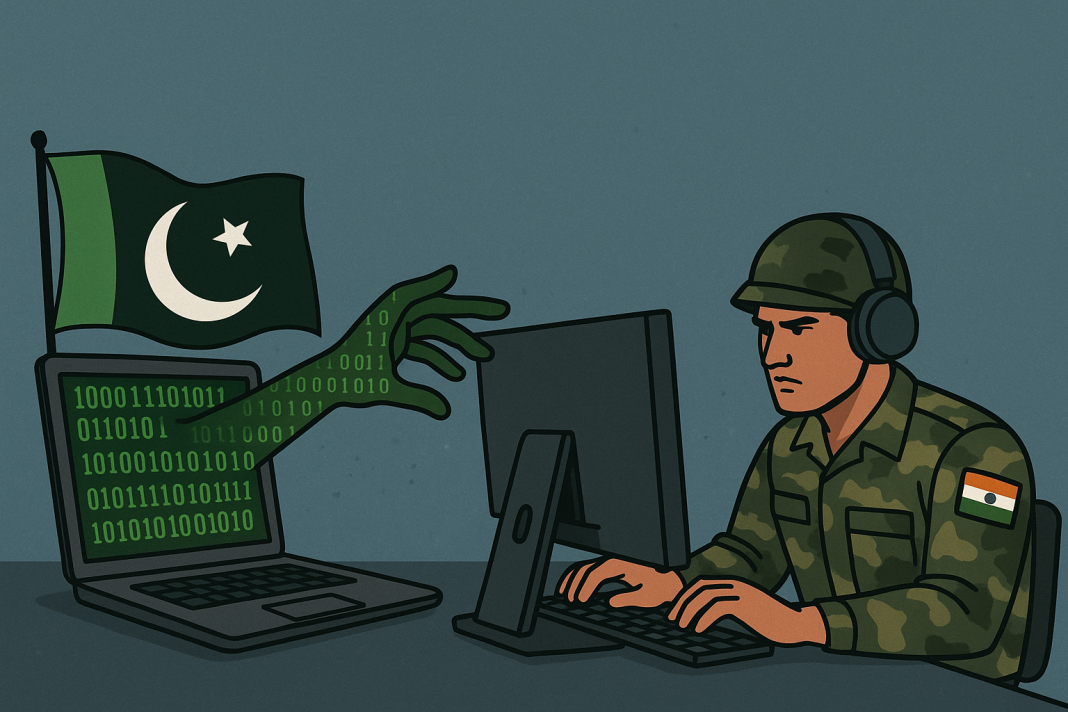Pakistan-based cyber actors have once again failed to breach India’s cyber defences, with recent attempts to compromise publicly accessible military welfare and educational platforms being swiftly neutralized by Indian cybersecurity teams. The thwarted operations highlight the resilience of India’s digital infrastructure and the limitations of its adversary’s capabilities.
According to intelligence sources, four related cyber incidents were detected and contained. These included attempts to breach the Army Welfare Housing Organisation (AWHO) database and the Indian Air Force Placement Organisation portal. Additionally, the websites of Army Public School (APS) Srinagar and APS Ranikhet were targeted with inflammatory propaganda, with APS Srinagar also facing a distributed-denial-of-service (DDoS) attack.
The intrusions, traced back to a Pakistan-based group operating under the alias “IOK Hacker” (Internet of Khilafah), aimed to deface websites, disrupt services, and harvest personal data. However, India’s layered cybersecurity architecture detected and mitigated the attacks in real time, ensuring that no operational or classified military networks were affected. All targeted sites were immediately isolated, and restorative measures were implemented.
These digital provocations occurred alongside a spate of ceasefire violations by Pakistan along the Line of Control (LoC), with Indian troops responding effectively to unprovoked small arms fire in sectors opposite Kupwara, Baramulla, Poonch, and Akhnoor between April 25 and 29. These incidents follow the recent Pahalgam terror attack on April 22, which claimed 26 lives, escalating tensions in the region.
Security forces have since intensified anti-terror operations in the Kashmir Valley, reinforcing their readiness on both physical and cyber fronts. Officials emphasized that the Indian Army remains vigilant, continually upgrading its cyber defences to safeguard not only national security infrastructure but also platforms that support the welfare of soldiers and their families.
These failed cyberattacks serve as a reminder of the evolving nature of threats and the importance of staying ahead in the digital domain. India’s proactive stance, both online and on the LoC, demonstrates its commitment to maintaining territorial integrity and cyber sovereignty.





